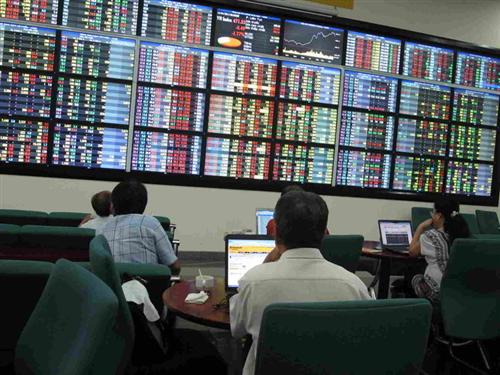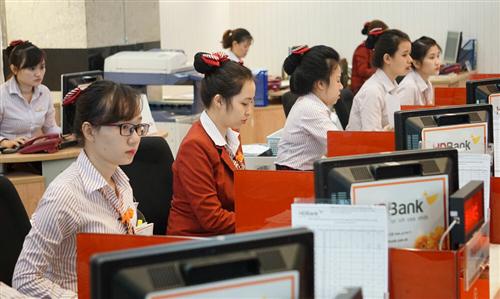Privatization drives Vietnam’s stock market growth
Privatization drives Vietnam’s stock market growth
The enhancement of SOE privatization would benefit both the local stock market and enterprises.
The presence of more stocks with good asset quality and large capitalization scale following the privatization of state-owned enterprises (SOEs) will help the Vietnamese securities market draw more investors for further growth, experts said.

More shares with good asset quality will make the local stock market more attractive.
|
According to analysts from brokerage firm Yuanta Securities Vietnam, if the stock market is a trading venue for both buyers and sellers, it is necessary to promote the development of both sides.
Regarding the sellers, the greater the number of businesses participating in the market is, the larger the market size would become, they said.
Investors, as a result, would have more options. Privatization of SOEs would give the market more stocks with good asset quality and large capitalization scale, thus drawing more investors which would improve market liquidity, they said.
Yuanta analysts cited that 2-3 years after the number of privatized SOEs increased sharply, the liquidity of the Vietnamese stock market improved significantly. The Vietnamese government accelerated SOEs divestment in 2007-2008 and 2015-2016, then the average stock market liquidity skyrocketed by 226% in 2009 compared to 2008, reaching VND1.6 trillion (US$69.56 million) per session. In 2018, liquidity also reached VND5.25 trillion (US$228.26 million) per session.
Besides, the foreign ownership ratio in existing stocks is currently almost fully occupied. If there are no more attractive new investment opportunities, foreign cash flow into the market will gradually narrow.
Enhancing the SOEs divestment therefore will help both increase the domestic market’s capitalization scale and create favorable conditions for foreign capital to flow into the market in the coming time, the analysts said.
Besides, according to analysts, the results showed after privatizing, the business performance of the enterprises has been better. At the same time, their financial quality has been also improved significantly, especially after two years since the government exited, thanks to higher profits though the growth rate of their assets and equity has slowed down.
Sharing the same view, Do Bao Ngoc, deputy general director of Vietnam Construction Securities JSC, said that the enhancement of SOE privatization would benefit both the local stock market and enterprises.
The divestment of more SOEs will make it feasible for Vietnamese stock markets to upgrade to an emerging market level from the current frontier market classification as the scale of the market will be expanded with increases both in the number of listed companies and market capitalization, Ngoc explained.
“For enterprises, they will gain more trust among investors with more transparency in corporate governance, shareholder diversification and larger involvement of strategic shareholders,” Ngoc noted.
Challenges ahead
The government has so far strived to speed up SOE privatization, but experts were concerned that the divestment plan for 2017-20 would fail. From 2016-2019, only 36 out of 128 enterprises were privatized, meeting 28% of the plan. Therefore, the remaining 92 firms have been instructed to get moving in 2020.
According to Ngoc, divesting from all the 92 SOEs targeted in 2020 seems to be an impossible task and requires more detailed plans for the latter stages of the divestment process.
Le Duc Khanh, director of market strategy at PetroVietnam Securities (PSI), explained that in 2020, the divestment process could stall as the stock market had been negatively affected by diseases and economic deceleration, with GDP forecast to decline.
“It might not be until the beginning of 2021, but the divestment process could accelerate when the stock market starts to recover,” Khanh said.
However, to make the SOEs privatization succeed, Ngoc from Vietnam Construction Securities suggested that in some cases, the government needs to approve divestment plans based on actual market demand. Therefore, the stages of supervision and approval need to be careful and transparent.
























